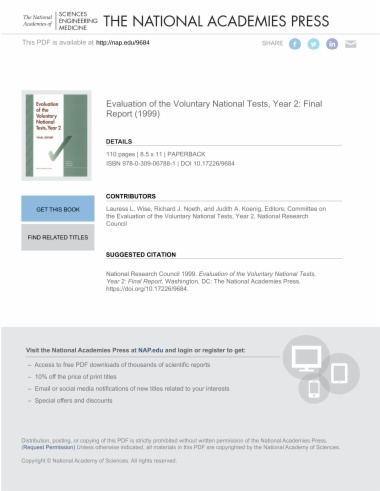

In his 1997 State of the Union address, President Clinton announced a federal initiative to develop tests of 4th-grade reading and 8th-grade mathematics that could be administered on a voluntary basis by states and school districts beginning in spring 1999. The principal purpose of the Voluntary National Tests (VNT) is to provide parents and teachers with systematic and reliable information about the verbal and quantitative skills that students have achieved at two key points in their educational careers. The U.S. Department of Education anticipated that this information would serve as a catalyst for continued school improvement, by focusing parental and community attention on achievement and by providing an additional tool to hold school systems accountable for their students' performance in relation to nationwide standards.
Shortly after initial development work on the VNT, Congress transferred responsibility for VNT policies, direction, and guidelines from the department to the National Assessment Governing Board (NAGB, the governing body for the National Assessment of Educational Progress). Test development activities were to continue, but Congress prohibited pilot and field testing and operational use of the VNT pending further consideration. At the same time, Congress called on the National Research Council (NRC) to assess the VNT development activities. Since the evaluation began, the NRC has issued three reports on VNT development: an interim and final report on the first year's work and an interim report earlier on this second year's work. This final report includes the findings and recommendations from the interim report, modified by new information and analysis, and presents our overall conclusions and recommendations regarding the VNT.